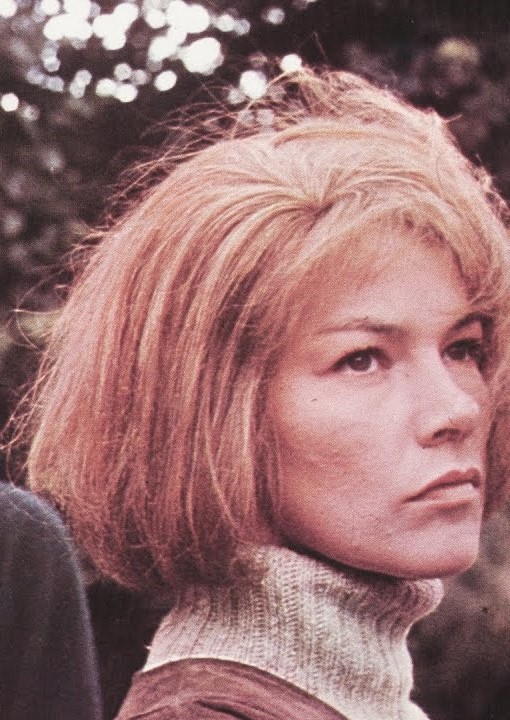It is one of the great regrets of my life to have never seen Glenda Jackson perform live on stage—and there was at least one serious opportunity that somehow (almost inexplicably) passed me by—in a play I loved, directed by the playwright himself. The play was Edward Albee’s Who’s Afraid of Virginia Woolf, with Jackson as Martha. The reviews were lukewarm at best, and the deficiencies pointed to Jackson’s own performance in the leading role. But they may have had as much to do with flaws in Albee’s own direction. (It happens.) That said, Jackson’s approach to stage acting (and acting in general) was remarkably fluid; and it’s not inconceivable that Jackson herself extended the tension of the last scenes of the play’s ‘Walpurgisnacht’ into a willful status quo ante culmination. My only point of comparison here is probably her filmed performance, not in Peter Brook’s English production of Peter Weiss’s Marat/Sade, but in the 1975 filmed production of the Christopher Miles adaptation of Jean Genet’s The Maids (Les Bonnes)—with, in its penultimate scene, her angry tirade at her ‘sister’ maid, Claire, building, into a bellowing, rallying cry for revolution.
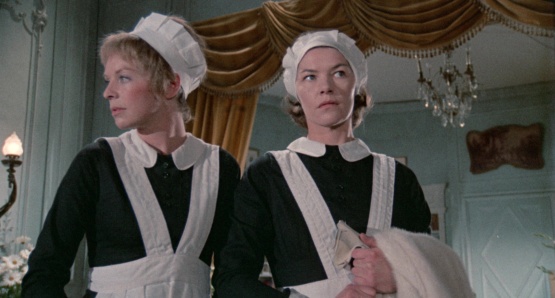 It wasn’t her first time at the ‘Revolution’—having already spectacularly tormented a diseased, dying (and mad) Jean-Paul Marat as Charlotte Corday in the aforementioned Marat/Sade (a production Susan Sontag wrote about in 1966 for Partisan Review—anthologized in Against Interpretation). But beyond those early milestone roles that marked her as a great star, she seemed to embody and give voice to something of the revolution that was happening around us as the late 1960s convulsed into the early 1970s. Certainly her performance as Elizabeth I in the 1971 BBC mini-series, Elizabeth R (and in the 1971 Universal film, Mary, Queen of Scots) could not fail to inspire with its unapologetic portrait of strength, authority and endurance. For many of us—not to ignore her greatest cinematic forebears (e.g., Bette Davis, Katherine Hepburn)—this may still be a definitive portrait. But other roles and performances gave further, expansive dimension to this sense of a society that was pushing forward—sometimes haltingly, sometimes hurtling—toward a great reckoning, if not revolution. ‘Let me out, let me in, let me be.’
It wasn’t her first time at the ‘Revolution’—having already spectacularly tormented a diseased, dying (and mad) Jean-Paul Marat as Charlotte Corday in the aforementioned Marat/Sade (a production Susan Sontag wrote about in 1966 for Partisan Review—anthologized in Against Interpretation). But beyond those early milestone roles that marked her as a great star, she seemed to embody and give voice to something of the revolution that was happening around us as the late 1960s convulsed into the early 1970s. Certainly her performance as Elizabeth I in the 1971 BBC mini-series, Elizabeth R (and in the 1971 Universal film, Mary, Queen of Scots) could not fail to inspire with its unapologetic portrait of strength, authority and endurance. For many of us—not to ignore her greatest cinematic forebears (e.g., Bette Davis, Katherine Hepburn)—this may still be a definitive portrait. But other roles and performances gave further, expansive dimension to this sense of a society that was pushing forward—sometimes haltingly, sometimes hurtling—toward a great reckoning, if not revolution. ‘Let me out, let me in, let me be.’
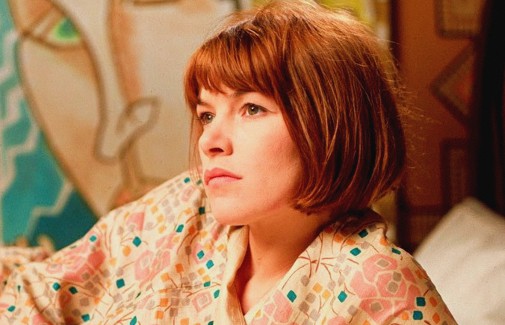 As someone who came of age on the crest of the feminist second wave and was imprinted with its spirit alongside the musical, verbal, and visual poetry that moved and influenced me at the time, I couldn’t help seeing something of this capacious spirit embodied in many of her film performances of the 1960s and 1970s. It had nothing to do with the class or ‘status’ aspects of her various roles and everything to do with their ambiguity and psychological complexity. She does not always play powerful women, but her presence always registers powerfully on the screen. (Which makes it all the more disturbing when the character is even slightly coming apart.) Her Charlotte Corday had already showed us she was capable of self-immolation on stage or screen. Self-evolution is what marks her most fascinating roles. No character evolves more than Jackson’s Gudrun in Ken Russell’s 1969 film of Lawrence’s Women In Love (no small thanks to Larry Kramer) in a way that almost pushes through some of the more fatuous Lawrentian posturing that effervesces into some of the characters’ lines. She probes, puzzles, problematizes the character with her performance—variously sly, abandoned, cool, compassionate, playful, manipulative, controlling, convulsive. In the picnic scene at the Crich country estate, she throws herself into a ballet of carnal desire, pursuit, teasing and torment (with a herd of cows)—as if to both presage and preemptively throw into question not simply her budding relationship with Gerald (Oliver Reed), the Crich heir, but the very foundation of what love might be. “Yes … well … that’s one way of putting it.”
As someone who came of age on the crest of the feminist second wave and was imprinted with its spirit alongside the musical, verbal, and visual poetry that moved and influenced me at the time, I couldn’t help seeing something of this capacious spirit embodied in many of her film performances of the 1960s and 1970s. It had nothing to do with the class or ‘status’ aspects of her various roles and everything to do with their ambiguity and psychological complexity. She does not always play powerful women, but her presence always registers powerfully on the screen. (Which makes it all the more disturbing when the character is even slightly coming apart.) Her Charlotte Corday had already showed us she was capable of self-immolation on stage or screen. Self-evolution is what marks her most fascinating roles. No character evolves more than Jackson’s Gudrun in Ken Russell’s 1969 film of Lawrence’s Women In Love (no small thanks to Larry Kramer) in a way that almost pushes through some of the more fatuous Lawrentian posturing that effervesces into some of the characters’ lines. She probes, puzzles, problematizes the character with her performance—variously sly, abandoned, cool, compassionate, playful, manipulative, controlling, convulsive. In the picnic scene at the Crich country estate, she throws herself into a ballet of carnal desire, pursuit, teasing and torment (with a herd of cows)—as if to both presage and preemptively throw into question not simply her budding relationship with Gerald (Oliver Reed), the Crich heir, but the very foundation of what love might be. “Yes … well … that’s one way of putting it.”
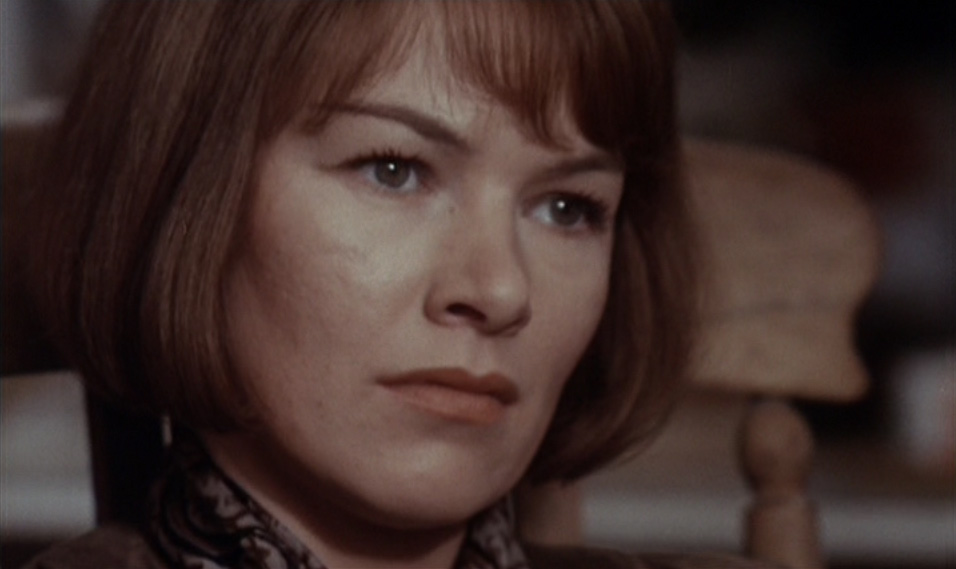 The crucible of that film was probably perfect preparation for her role in John Schlesinger’s sixth feature film (which followed his double-Oscar winner, Midnight Cowboy), Sunday Bloody Sunday (the tremendously articulate script by The New Yorker’s Penelope Gilliatt), as Alex Greville, a young, recently divorced Londoner, navigating the more than slightly fraught social terrain between her work, friends and family, and her relationship with a slightly younger and very hip artist and novelty designer (Bob—played by Murray Head) who also happens to be in a relationship with a physician with whom she (naturally) shares mutual (and merciless) friends—with the additional wrinkle that the physician—Daniel—is a man (Peter Finch). It’s all very civilized yet riddled with conflicts and contradictions that frustrate and finally exasperate both Alex and her rival for Bob’s affections. All the while, of course, Bob has his own agenda—which has nothing to do with either Alex or Daniel. (The ending—with Peter Finch articulating, even echoing the emotional/romantic frustrations of both characters is as moving today as it was 50 years ago.)
The crucible of that film was probably perfect preparation for her role in John Schlesinger’s sixth feature film (which followed his double-Oscar winner, Midnight Cowboy), Sunday Bloody Sunday (the tremendously articulate script by The New Yorker’s Penelope Gilliatt), as Alex Greville, a young, recently divorced Londoner, navigating the more than slightly fraught social terrain between her work, friends and family, and her relationship with a slightly younger and very hip artist and novelty designer (Bob—played by Murray Head) who also happens to be in a relationship with a physician with whom she (naturally) shares mutual (and merciless) friends—with the additional wrinkle that the physician—Daniel—is a man (Peter Finch). It’s all very civilized yet riddled with conflicts and contradictions that frustrate and finally exasperate both Alex and her rival for Bob’s affections. All the while, of course, Bob has his own agenda—which has nothing to do with either Alex or Daniel. (The ending—with Peter Finch articulating, even echoing the emotional/romantic frustrations of both characters is as moving today as it was 50 years ago.)
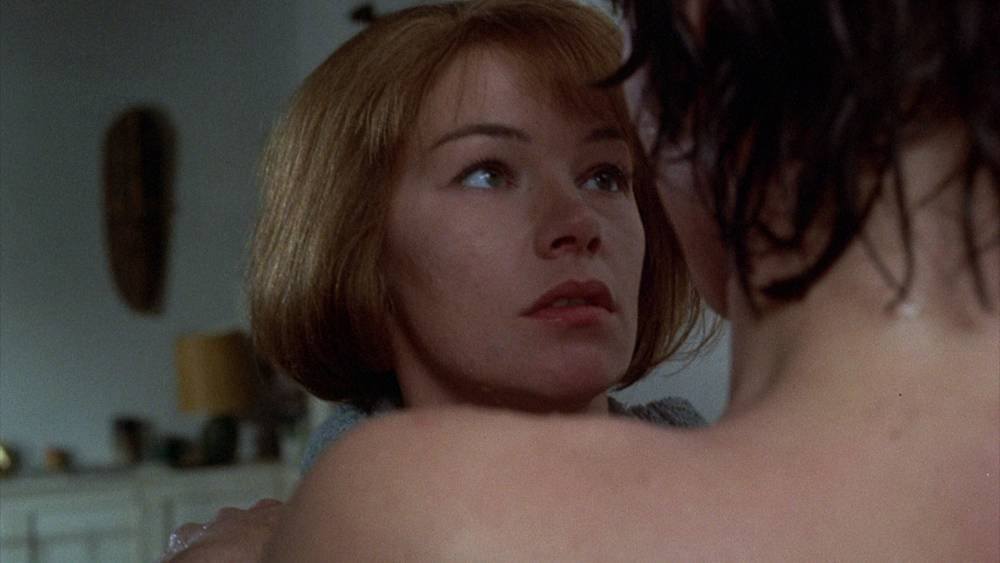 Complication and contradiction, both internal and external, were things Jackson understood to the marrow and we see her working this terrain in scene after scene in this film and so many others to come. She understood self-possession and self-projection, and the fractures that occur in both—how that might alternately move and hobble a character. Jackson is always good in the scrum of the private face-off or the ensemble, but her solitary moments are no less eloquent. She understood the face one turns to privately in the mirror versus the face one turns publicly to one’s society.
Complication and contradiction, both internal and external, were things Jackson understood to the marrow and we see her working this terrain in scene after scene in this film and so many others to come. She understood self-possession and self-projection, and the fractures that occur in both—how that might alternately move and hobble a character. Jackson is always good in the scrum of the private face-off or the ensemble, but her solitary moments are no less eloquent. She understood the face one turns to privately in the mirror versus the face one turns publicly to one’s society.
She made internal contradictions come alive in a character. Her Solange (again from the 1975 production of Genet’s The Maids) was a tour de force of the doubt-clouded, conflict-ridden physiognomy. How many actors could play that trés-Genet fusion of abjection and arrogance with comparable virtuosity and finesse? Her Nina in Russell’s The Music Lovers was a roller-coaster version of that sort of play with a kind of Eloise esprit. (Yes—I’m talking about the Plaza Hotel’s resident delinquent devised years before Jackson became an actor by Kay Thompson and Hillary Knight.) She ‘skittered’ some of her alternately bright and panic-fevered lines as if she were Eloise dragging a stick across the Plaza woodwork.
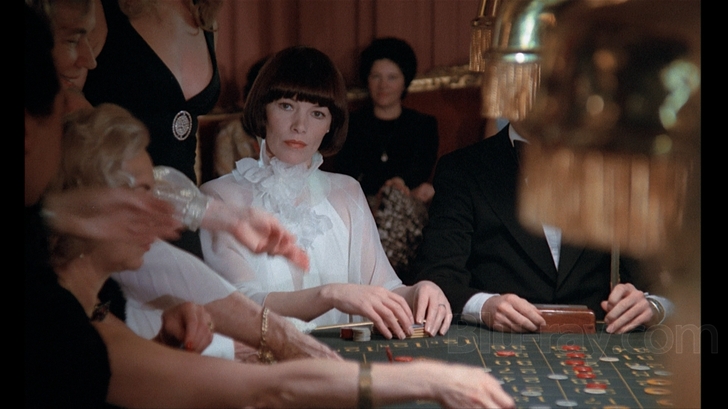 She expressed some discontent at Joseph Losey’s more controlling (and, she might have argued, conventional) approach to his direction of her performance in The Romantic Englishwoman, but it’s still a fluid, supple performance as what is essentially—albeit with Sachertorte layers of irony—the title character; also in so many ways a kind of character made possible by second wave feminism. She is the contemporary (English bourgeoise—circa 1975) woman propelled onto a ‘voyage of self-discovery’ out of curiosity, boredom and discontent. (Following her return from one such brief voyage—from Baden-Baden, her husband, Lewis (Michael Caine), asks her, “Elizabeth—are you discontented?” Pausing (as if reflecting for a split-second on his brutal verbal attack earlier in the day on an equally feminist pal), she responds, “I would be—but I don’t feel I have the right.”). The script, co-written with the novel’s author, Thomas Wiseman, by Tom Stoppard, deliberately leaves unanswered questions, irreconcilable conflicts, but hits the essential notes. The romance of this Englishwoman is that she wants everything; and Jackson’s performance, however controlled or restrained, seems to hold that inchoate question in suspense for all of us.
She expressed some discontent at Joseph Losey’s more controlling (and, she might have argued, conventional) approach to his direction of her performance in The Romantic Englishwoman, but it’s still a fluid, supple performance as what is essentially—albeit with Sachertorte layers of irony—the title character; also in so many ways a kind of character made possible by second wave feminism. She is the contemporary (English bourgeoise—circa 1975) woman propelled onto a ‘voyage of self-discovery’ out of curiosity, boredom and discontent. (Following her return from one such brief voyage—from Baden-Baden, her husband, Lewis (Michael Caine), asks her, “Elizabeth—are you discontented?” Pausing (as if reflecting for a split-second on his brutal verbal attack earlier in the day on an equally feminist pal), she responds, “I would be—but I don’t feel I have the right.”). The script, co-written with the novel’s author, Thomas Wiseman, by Tom Stoppard, deliberately leaves unanswered questions, irreconcilable conflicts, but hits the essential notes. The romance of this Englishwoman is that she wants everything; and Jackson’s performance, however controlled or restrained, seems to hold that inchoate question in suspense for all of us.
The extraordinary range of her roles tells us something about her understanding of the range of human character and possibility and how she could play it as a conductor leads an orchestra. Of course she played the ‘big’ roles—Hedda, Masha, Bernarda, Ophelia, Sarah Bernhardt, Lear. But she could also play a poet like Stevie Smith. (Also Anna Akhmatova.) In an early theatrical production, she played both Christine Keeler and (then) Jackie Kennedy. She understood both power and romance; and conceivably went to the corridors of power to achieve something of that ‘romantic’, ambitious vision for herself, her constituents and the British political audience at large during her 23 years of public service as Member of Parliament for Hampstead and Highgate. She stood fast with the transit workers who had been among her first backers and was parliamentary secretary for Transport under the Blair government—which didn’t deter her from ceaselessly militating against his commitment of British arms and soldiers to the U.S.-led Iraq war. She resolutely opposed hiking tuition fees for higher education (no doubt recalling her own experience as a student accepted to RADA, but without scholarship assistance—until her village pooled resources to send her there). She was also parliamentary secretary for the Environment.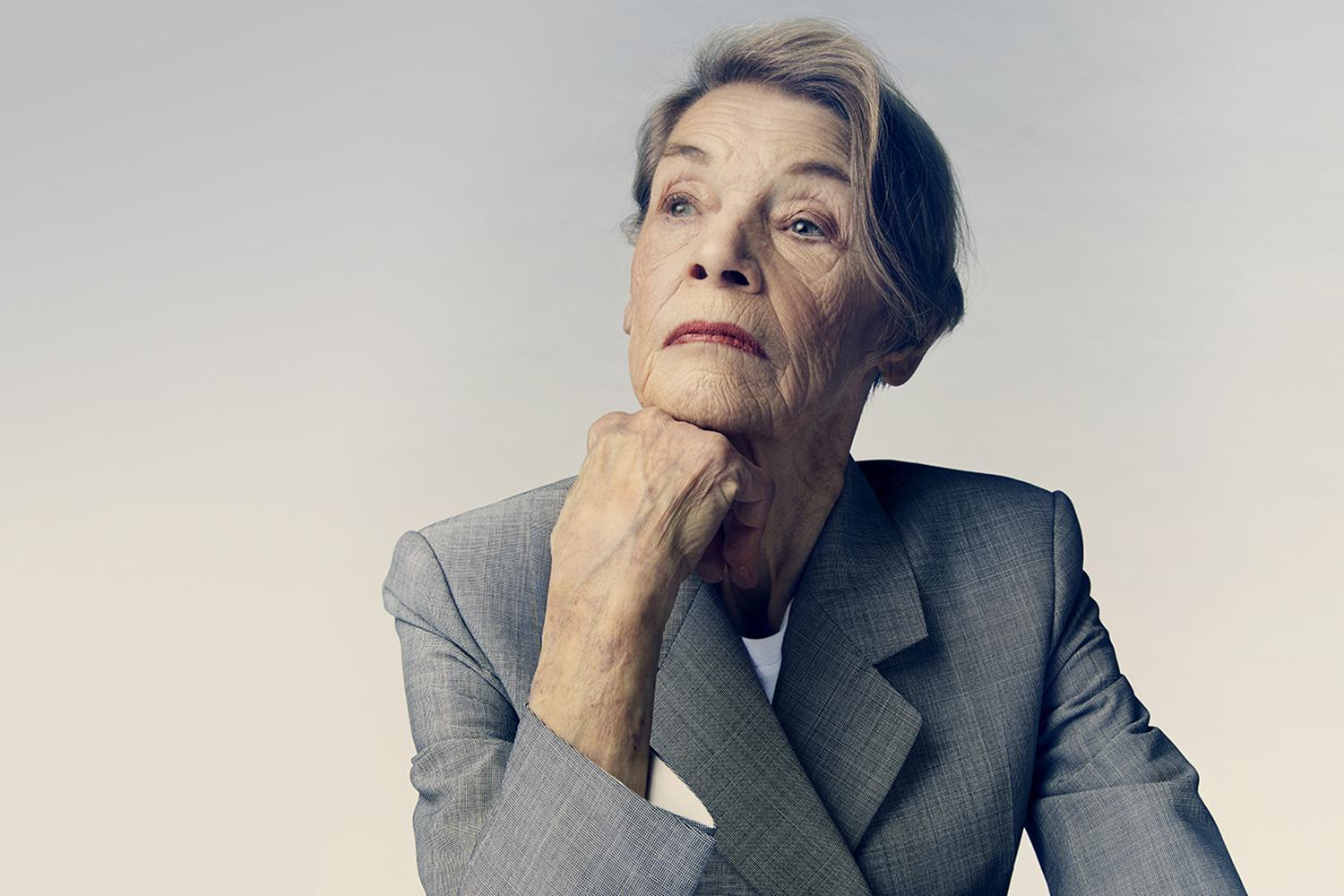
It’s impossible not to be dazzled by the scope of her stage and screen credits, her accomplishments as a public servant and political player—it wasn’t just on stage and screen (or recordings) that she left everything she had to give. But it is those early performances I find myself returning to in the days since she left us. They came into view for me at a particularly impressionable and vulnerable moment, coinciding with a particularly fraught cultural and political moment—which they met head-on. Whether by way of Brook or Russell or Schlesinger (or even Losey) and their writers, they presented an expansive range of who it might be possible to be or what we might make of ourselves and become. That, like Genet’s Maids, we might carry all our doubts and conflicts, alongside our imaginations—still alive, vibratile and adventurous—to a revolution. And—with a final nod to Glenda and more than a little gratitude for performances that laid it all out—I’m still down for all of it.

